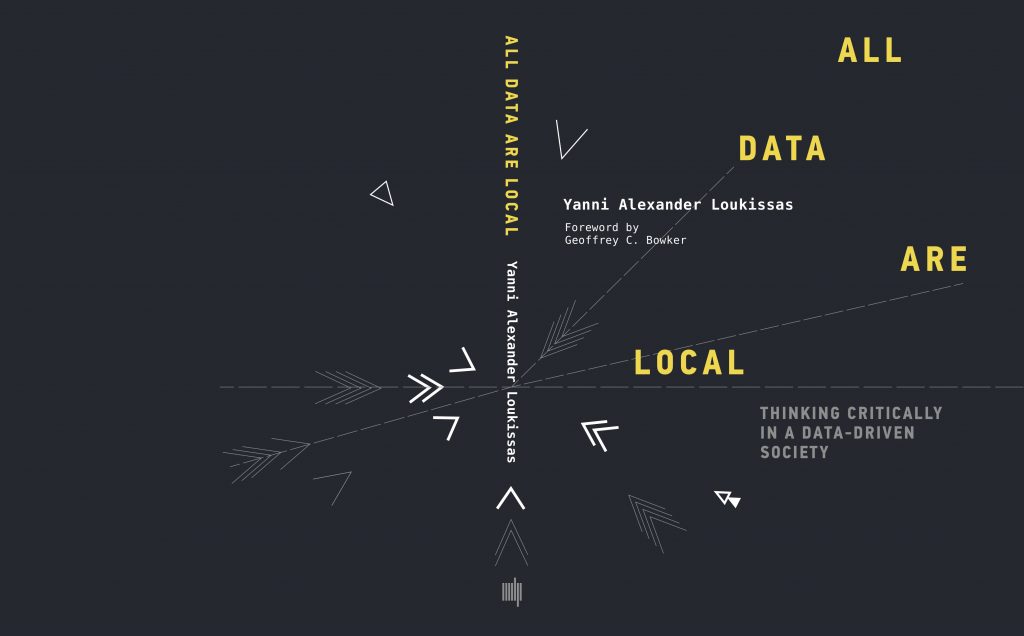In our data-driven society, it is too easy to assume the transparency of data. Instead, Yanni Loukissas argues, we should approach data sets with an awareness that data are created by humans and their dutiful machines, at a time, in a place, with the instruments at hand, for audiences that are conditioned to receive them. All data are local. The term data set implies something discrete, complete, and portable, but it is none of those things. Examining four sources important for understanding the state of public data in the United States—Harvard’s Arnold Arboretum, the Digital Public Library of America, UCLA’s Television News Archive, and the real estate marketplace Zillow—Loukissas shows us how to analyze data settings rather than data sets.
Loukissas sets out six principles: all data are local; data have complex attachments to place; data are collected from heterogeneous sources; data and algorithms are inextricably entangled; interfaces recontextualize data; and data are indexes to local knowledge. He then provides a set of practical guidelines that follow. To make his argument, Loukissas employs a combination of qualitative research on data cultures and exploratory data visualizations. Rebutting the “myth of digital universalism,” Loukissas reminds us of the meaning-making power of the local.
Now available for purchase through the MIT Press website.
Endorsements:
All Data Are Local is a tremendous contribution to emerging scholarship that seeks to counter transcendent narratives of data and recover its social, cultural, historical, geographical, and material contexts. Loukissas grounds an inspiring theoretical analysis in rich and detailed examples that give us valuable insight into how data comes to be, what datafication produces, what it obscures—and how we might craft alternatives.
Paul Dourish, Chancellor’s Professor of Informatics, University of California, Irvine, author of The Stuff of Bits: An Essay on the Materialities of Information
In a time when many are trying to understand what comes after big data, Loukissas offers a crucial reframing of data as a thing rich in context and deeply connected to place and to local knowledge. Designers, developers, and data scientists will find much value in the detailed, practical case studies. Essential reading for anyone interested in what the future of data holds.
Jer Thorp, Data Artist
In an era of data hype, where scientists and politicians make claims about data that bounce between the messianic and the apocalyptic, Yanni Loukissas has written a sober corrective. We need to understand where, how, and with what media data gets made. What he calls the locality of data is the key to turning data into real knowledge, rather than just more and more information. Loukissas is a rare participant in this debate—one who actually knows how to work with data—and he writes about the beautifully designed things he makes with an elegant clarity and a fine critical eye. If you want to see the ways in which data, design, and politics can best inform each other, you need to read this book.
Laura Kurgan, Associate Professor of Architecture and Director for the Center for Spatial Research, Columbia University
Reviews:
Journal of Information Research
Information, Communication, and Society
